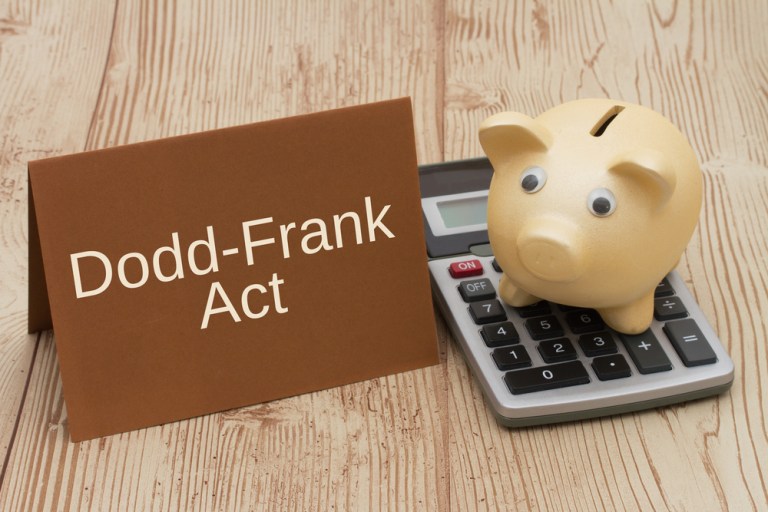Dodd-Frank, And Deregulation, Is In The House (Maybe)

In regulatory land, spring has sprung, to borrow a seasonal phrase. Tax season lurches to its end, and thoughts turn to who spends what and where and how.
Awaiting consideration by the House of Representatives is banking regulation — or rather, deregulation.
As was widely reported last month, banking deregulation passed the Senate, with a vote of 67-31. The bill, among other things, would boost the threshold that helps define which banks are “big” and how they might be tied to stricter capital requirements.
Now the House is, at some point, poised to take up its own consideration of that regulation. There seems to be some debate as to what the final laws might be and what the House may seek to do in terms of adding its own stamp to what the Senate has done.
In an interview with PYMNTS via written exchange, Thomas Kimner, head of Global Marketing and Operations, Risk Management, at SAS Institute, said the legislation will provide improved credit access to consumers, noting the reduced requirements for mortgage origination and lending.
“Smaller banks that can attract consumers in terms of financing homes can often sell other credit products to them — credit cards, auto loans, lines of credit — as well as open additional savings and checking accounts,” he said.
And, in reference to the loosening of capital and stress-testing requirements, Kimner stated that “the advantages of the shift fall mainly to banks under $250 billion.” Lower capital thresholds, he said, should lower operating costs associated with regulatory compliance.
The disadvantages, Kimner continued, “fall mainly on overall financial safety and soundness — and ultimately the taxpayer — if relaxed capital standards and disclosure requirements result in another bailout of the banking industry.”
In looking at how the Senate bill might shake out in the House, Kimner said, “It is often difficult to predict how the Senate and House will reconcile differing bills. In this case, there is considerable overlap between the two legislative bodies, with relatively few significant differences. However, one difference that may be picked up and expanded from the Senate’s version is the broader notion of an ‘off-ramp’ for banks that are well-capitalized and maintain an equity-capital (leverage) ratio higher than currently required.
“The Senate version of the reform bill,” he continued, “offers relief only to smaller banks, so raising the asset threshold and providing broader relief might be considered. Another difference is related to the breadth of the repeal of the Volker rule,” he told PYMNTS.
The Senate version is narrower in scope, he explained, “so there is room for broader repeal. Further differences include possible reform related to removing or repurposing two of the agencies created under the Dodd-Frank Act — the Financial Stability Oversight Council (FSOC) and the Consumer Financial Protection Bureau (CFPB).”
And what lies on the horizon? Kimner stated the recent efforts to examine regulation may set the stage for other deregulatory efforts.
“It is probably safe to assume that any financial industry regulation that increases the cost of operations, adds to inefficiencies and/or reduces the flow of capital is potentially up for review and reform,” he told PYMNTS. “Theoretically, that includes international banking rules like Basel, for example. While Vice Chairman Quarles has publicly stated a desire to reform banking regulation, he has discussed this in the context of improving efficiencies rather than relaxing standards or diminishing the safety and soundness of the banking industry.”
Internationally
In South Korea, executives at the helm of two crypto exchanges were detained by law enforcement amid allegations they embezzled assets from customers. Of the duo detained, one was Kim Ik-hwan, CEO of Coinnest, the sixth-largest crypto exchange based on bitcoin trading volume (the other executive was unnamed). The allegations, according to South Korean prosecutors, center on charges that Kim and a trio of other executives transferred tens of millions of dollars of assets to private bank accounts. Coinnest apologized for “causing grave concern” and has removed those managers from overseeing company business. The recent activity in South Korea expands efforts beyond the raids seen earlier in the year, yet there has been no ban on trading as had been anticipated by industry observers.
CFPB News
Separately, headlines continue to swirl around the Consumer Financial Protection Bureau (CFPB). In the most recent news, acting director Mick Mulvaney is using the actual agency structure to parry questions about his own leadership. The news follows the debut of the first semi-annual report issued under his tenure, with commentary (from him) that the agency is too powerful.
American Banker reported Mulvaney last week declined to answer questions that had been asked in letters from Sen. Elizabeth Warren (D-Mass.) and other Democrats. His own response stated that “I could go through the almost 11 pages of single-spaced allegations of all that has supposedly gone wrong at the Bureau under my leadership,” Mulvaney said. “As you can imagine, I have a very different take on what is actually happening at the Bureau (and, tellingly, my information is based on being here and does not rely on sources such as leaked — and sometimes probably false — materials).”